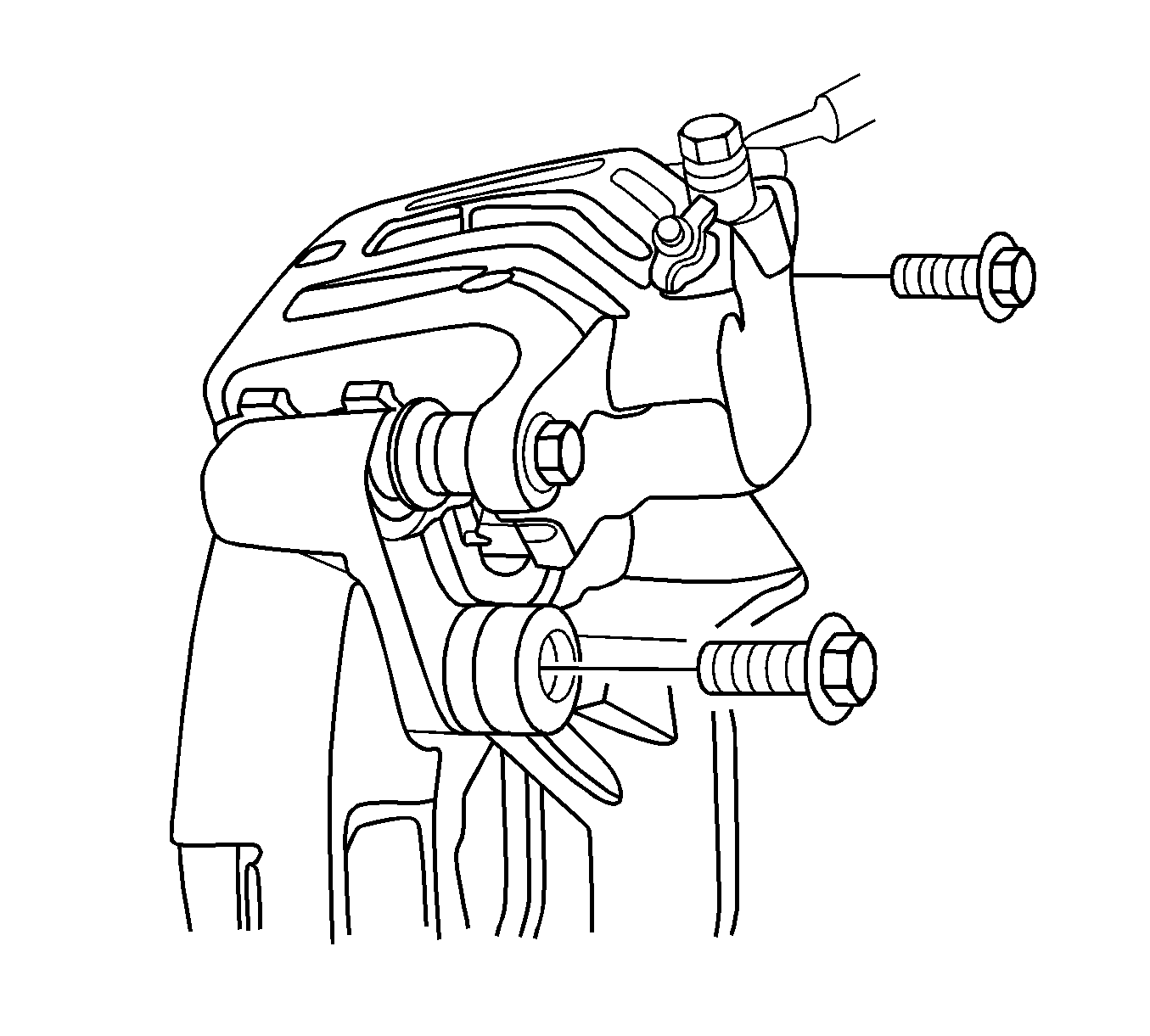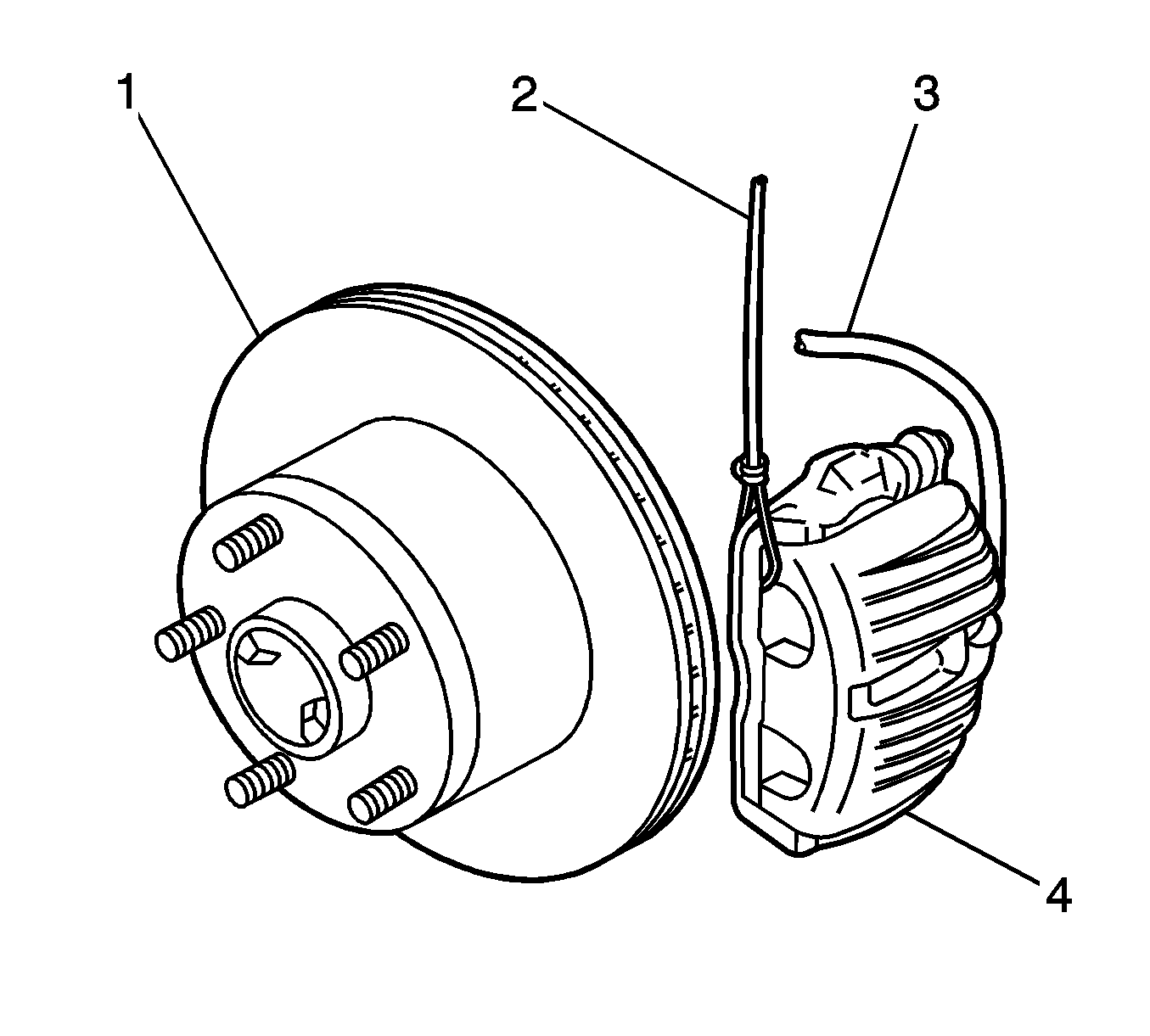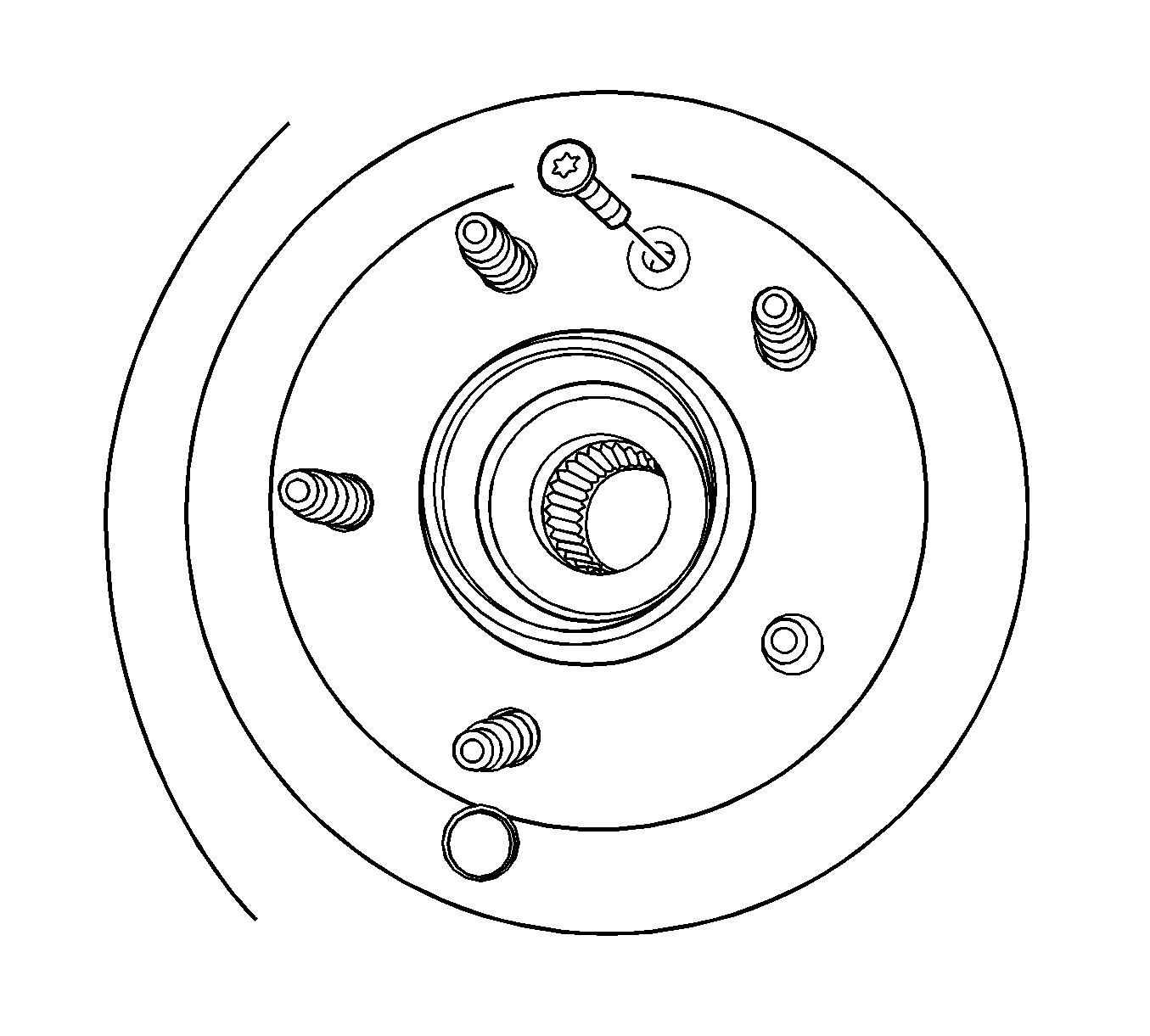Special Tools
| • | J 41013 Rotor Resurfacing Kit |
| • | J 42450-A Wheel Hub Resurfacing Kit |
Removal Procedure
- Release the park brake.
- Raise and support the vehicle. Refer to Lifting and Jacking the Vehicle.
- Remove the rear tire and wheel assembly. Refer to Tire and Wheel Removal and Installation.
- Remove the caliper bracket bolts.
- Remove the caliper, the bracket, and the pads as an assembly and support the assembly with heavy mechanics wire (2). Verify there is no tension on the brake hose.
- Remove the rotor detent screw.
- Remove the rotor.


Notice: Support the brake caliper with heavy mechanic wire, or equivalent, whenever it is separated from its mount and the hydraulic flexible brake hose is still connected. Failure to support the caliper in this manner will cause the flexible brake hose to bear the weight of the caliper, which may cause damage to the brake hose and in turn may cause a brake fluid leak.
Important: DO NOT disconnect the hydraulic brake flexible hose from the caliper.

Installation Procedure
- Using the J 42450-A , thoroughly clean any corrosion from the mating surface of the hub flange.
- Using the J 41013 , thoroughly clean any corrosion from the mating surface of the brake rotor.
- Inspect the mating surfaces of the hub and the rotor. Verify there are no foreign particles or debris remaining.
- Inspect the park brake hardware. Replace the components as necessary. Refer to Park Brake Hardware Inspection.
- If necessary, adjust the park brake in order to move the park brake shoes away from the drum portion of the rotor. Refer to Park Brake Adjustment.
- Install the rotor and install the detent screw.
- If you removed and installed the brake rotor as part of a brake system repair, measure the LRO of the brake rotor in order to ensure optimum performance of the disc brakes. Refer to Brake Rotor Assembled Lateral Runout Measurement.
- If the LRO exceeds the specification, adjust the LRO to the specification. Refer to Brake Rotor Assembled Lateral Runout Correction.
- Clean the brake rotor with denatured alcohol or an equivalent brake cleaner.
- Install the caliper, the bracket, and the pads as an assembly.
- If reusing the brake caliper guide pin bolt, prepare the guide pin bolt and the guide pin as follows:
- Apply high-temperature, high-strength threadlocker to 2/3 of the threaded length of the brake caliper guide pin bolt.
- Allow the threadlocker to cure approximately 10 minutes before installing the guide pin bolts.
- Install the caliper bracket bolts.
- Install the rear tire and wheel assembly. Refer to Tire and Wheel Removal and Installation.
- Lower the vehicle.
- Adjust the park brake. Refer to Park Brake Adjustment.
- If you refinished or replaced a brake rotor, burnish the pads and the rotors. Refer to Brake Pad and Rotor Burnishing.
Important: Clean the hub and the brake rotor mating surfaces. Failure to remove corrosion and other contaminants from the hub and the rotor may result in excessive assembled lateral runout (LRO) of the brake rotor, which could lead to brake pulsation.
Notice: Refer to Fastener Notice in the Preface section.

Important: In order to guarantee uniform braking, always refinish both rotors even if only one rotor is defective.
Tighten
Tighten the rotor detent screw to 8 N·m (71 lb in).
Important: If reusing the brake caliper guide pin bolt, the threads of the brake caliper guide pin bolt and the threads of the guide pin must be free of threadlocker residue and debris prior to the application of threadlocker to ensure proper adhesion and fastener retention.
| 11.1. | Thoroughly clean the threadlocker residue from the guide pin bolt threads with denatured alcohol or equivalent and allow to dry. |
| 11.2. | Thoroughly clean the threadlocker residue from the guide pin threads with denatured alcohol or equivalent and allow to dry. |
Ensure there are no gaps in the threadlocker along the length of the filled area of the guide pin bolt.

Tighten
Tighten the caliper bracket bolts to 100 N·m (74 lb ft).
